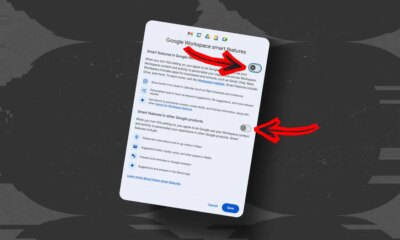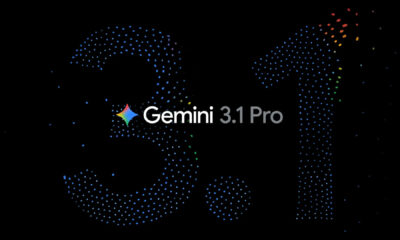SEO
Google Search, Chrome & Ad Execs Plotted To Increase Ad Revenues

United States antitrust lawsuit against Google uncovers emails of executives from Google Search, Chrome and Ads discussing schemes for increasing ad revenue.
There are two documents, one from 2019 that features top Google executives from Search, Chrome and Ads hatching plans for pumping up ad revenues before the end of the quarter. At one point they even discuss the impact on Google’s stock price and their own personal fortunes.
Another document, dating from 2017, acknowledges reluctance of the Search team to do anything that could negatively affect users.
It must be pointed out that the most outrageous document consists of top executives, including Ben Gomes, who is one of the top engineers responsible for Google’s Search algorithm.
The PDF documenting the email discussion appears to shatter Google’s longtime insistence that that the Search Team is firewalled from the Advertising side of the company.
But again, these are top executives having a discussion, not the search team itself, apart from Ben Gomes.
Search Team Firewalled From Ads Teams
Googlers have made many statements over the years, at search conferences and in Google Hangouts and on Twitter that the search side of Google does not coordinate with the advertising side.
For example, in a May 8, 2015 Google Hangout, Google’s John Mueller explained how the search team is blocked off from the Ads team.
The question he answered was about a rumor that Google makes SEO more difficult in order to make more money from the ads.
Mueller responded:
“This is definitely not true.
So, this is something where we have a very, very strong firewall essentially between the paid side of Google and the organic search side.
And that’s not something that we would kind of connect, where we would say we would make algorithms that make the search results worse so that people go and click on ads more.
…So, it’s something where we’re not artificially trying to make it more complicated or harder or the search results worse so that people click on ads.
…So, that’s something where on the one hand, we really have the strong separation between the two sides.
On the other hand, we really need to keep that upright, so that we can make sure our search results are really as neutral as possible, as high quality as possible and really provide what users want.”
Google Executives Worked Together With Google Ads Team
The 2019 email is from a Google Ads executive Jerry Dischler. It was sent to a ChromeOS executive named John Maletis.
Also in on the email discussion is Ben Gomes who worked on the Google search algorithm since the earliest days, and Prabhakar Raghavan, an executive vice president who has been involved in the Search side as well as with Google Ads.
Google Ads executive Dischler wrote:
“The Search team is working together with us to accelerate a launch of a new mobile layout by the end of May that will be very revenue positive (exact numbers still moving), but that still won’t be enough.
Our best shot at making the quarter is if we get an injection of at least [redacted]% , queries ASAP from Chrome.”
He followed those remarks by lamenting how disappointed all the different team members will be should Google’s stock price drop because the advertising side didn’t perform well enough.
Frankly, it’s shocking that anyone involved with Google’s algorithm is in a discussion with the ChromeOS and Advertising teams about ways to artificially increase search queries in order to help meet the advertising side’s performance goals for the quarter.
And as disappointing as that is, it gets even worse.
The executives go on to discuss how not meeting their revenue goals will impact their personal wealth.
Dischler continued:
“I care more about revenue that the average person but think we can all agree that for all of our teams trying to live in high cost areas another $[redacted] in stock price loss will not be great for morale, not to mention the huge impact on our sales team.
In the next paragraph he expresses pride in Google’s “pure approach” and claims he doesn’t want to “poison the culture of any team.”
And with his next breath this is where he starts handing out the poison, saying:
“I don’t want the message to be ‘we’re doing this thing because the Ads team needs revenue.’ That’s a very negative message.
But my question to you is – based on above – what do we think is the best decision for Google overall?
…Are there other ranking tweaks we can push out quickly?”
A high ranking Chrome executive, Anil Sabharwal, responds by affirming they should go ahead with changes to search ranking (ostensibly to benefit Google Ads, which is the context of the entire email).
Tellingly, he worries about “bad press” at the upcoming Google IO event.
Sabharwal responded:
“…we don’t want bad press around IO, let’s roll out #1 and #2 now and get the benefits.
Let’s also start the search ranking experiments asap and roll those out once we get the data.”
Later on in the email chain, Anil Sabharwal questions how far the executives are willing to go in terms of the negative impact to the user experience, long term retention and team motivation.
He then talks about changes to search ranking:
“We are making progress here, and I’m hopeful the search ranking improvements in Omnibox will also be a material increase in SQV, but I understand we need to do more.”
The “improvements” being discussed are a way to increase search queries and presumably ad revenues.
In another part of the email chain Jerry Dischler remarks on the short term gains from reversing “query-driven revenue loss” and references experiments on the Chrome and Search side.
He then remarks on how they need to be more aggressive about raising the advertising revenues.
Dischler writes:
“It’s a decent start but collectively we need to figure out how to do more and this work is urgent because we continue to face these strong headwinds in Q2.”
Anil Sabharwal, the Chrome executive, later discusses the changes to Chrome, specifically the Omnibox changes, that are designed to increase search queries, describing the work of the Chrome team for increasing search queries as “heroic.”
He wrote:
“1…we were able to get launch approval to rollout two changes (entity suggest and tail suggest) that increase queries by [redacted]% and [redacted]% respectively.
2. We are going to immediately start experiments to improve search ranking in the omnibox (more search results and nudging search to the top).”
The changes Google made to Chrome were so bad that the experiments were noticed by commenters on Reddit.
The executive found it humorous that the Redditors thought that the experiment was a “bug.”
Another government exhibit contains a discussion given in 2017 where the Ads side expresses frustration with the wall separating the Ads team from the search team.
The discussion calls attention to talk that the Search side should consider “query quotas.”
The document reveals:
“Ads/Revenues
…the old model of things getting thrown over the wall to them has outlived its usefulness…There’s talk of suggesting that the Search team consider new goals around query quotas, focusing on monetizable queries, returning towards focusing Search experience on high revenue countries…”
The document outlines the fears of the Search team about metrics that could lead to “unnatural search experiences” from the quest for ad revenue.
So it’s not that the Search team itself was complicit in rigging search in service of more ad revenues.
The second document acknowledges that the Search team itself didn’t want to engage in activities that would negatively impact the users.
Read the entire email document in PDF format.
Read the second exhibit in PDF format that kicks around the idea about “query quotas”
Watch John Mueller discuss the firewall between the search and ads at the 41 minute mark:











![How AEO Will Impact Your Business's Google Visibility in 2026 Why Your Small Business’s Google Visibility in 2026 Depends on AEO [Webinar]](https://articles.entireweb.com/wp-content/uploads/2026/01/How-AEO-Will-Impact-Your-Businesss-Google-Visibility-in-2026-400x240.png)
![How AEO Will Impact Your Business's Google Visibility in 2026 Why Your Small Business’s Google Visibility in 2026 Depends on AEO [Webinar]](https://articles.entireweb.com/wp-content/uploads/2026/01/How-AEO-Will-Impact-Your-Businesss-Google-Visibility-in-2026-80x80.png)





